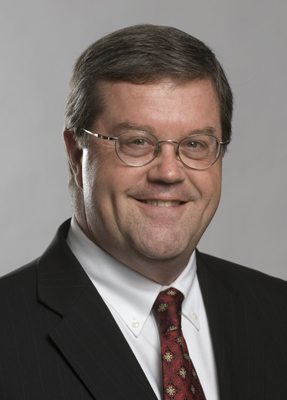“Nobody is trying to deny the seriousness of getting this under control, but does it have to be on a billboard?”
– Birmingham Mayor Larry Langford
Yes, as a matter of fact Larry, it does.
But apparently making Jefferson County residents aware of a syphilis outbreak is more of a detriment to our efforts for attracting new businesses into the region than a necessity to make sure that it does not become worse than it already is. In case you didn’t see Saturday’s Birmingham News story, two of our elected leaders feel as though bus advertisements calling attention to the fact that we have the #1 concentration of syphilis cases in the United States were portraying a bad image for the region (among other things).
While they are only removing ads announcing the outbreak off of the sides of buses, it takes away a valuable tool available to the Jefferson County Department of Health in this battle of educating the public, one that they should be commended for. It was doing what it was supposed to do – catching the attention of those that saw the signs even if only for a few seconds at a time.
If there is anyone that understands the importance of catching the attention of people in short, simple sound bites, it is the current mayor of the city of Birmingham. Mayor Langford provides just enough information to pique our interest and then he moves on to the next 6 or 7 things on his agenda. We stay just confused and bombarded long enough for the next idea to be planted and then the questions that need to be raised never are. It’s a shame, since some conversation may actually make some of these ideas better. In this case it’s a real shame that he doesn’t realize that the Department of Heath is simply taking a page out of his play book.
He’s done something again, only this time it’s something that could become a bigger issue if not handled properly. I’d like to know if he and Commissioner Fine-Collins plan to have the health department remove the billboards and television ads as well? If so, we’re going to use taxpayer dollars to remove ads that were partially paid for by taxpayer dollars trying to educate the taxpayers about a serious issue — like the logic?
Maybe he has a secret plan to use that bully pulpit that mayors possess to make sure that more people are aware…
Maybe.
Maybe spending taxpayer dollars to sweep one of our regions issues under the rug could be better spent making sure that we dealt with the outbreak appropriately, making sure that everyone was aware of the issue.
The problem with both of those solutions is that they sound too logical.
As a city recognized as a national leader in medical research, maybe the idea of making people aware of the issue constitutes our area hospitals and medical leaders doing the job that they are best known for. And it’s not like the ads haven’t had an effect, it has encouraged more people to go in and be tested for symptoms.
We can’t call the kettle black without making sure that we air all of our dirty laundry as well. We’d actually had a story prepared about the outbreak more than a month ago; however we were waiting for a list of current solutions that were being undertaken to be completed before putting it up on the site. We felt as though that was most important – making sure that solutions were presented. Unfortunately, most of us are only now writing about the issue because Mr. Langford and Ms. Fine-Collins finally gave us a reason to do so.
So we decided to run the story this morning (if you didn’t come here directly from the post, head on over to the Newsstand to take a look). Even if you feel as though this issue cannot hit you personally, it is important enough to the overall health of our region to take a good, hard look at it and what can be done to assist with handling it.
So maybe recent stories about Birmingham’s potential are just not powerful enough to overcome this outbreak as selling points, at least in the eyes of our city’s chief executive. But I think I’d rather have folks coming in to join this transplant in a movement to make the city a better place than have them wonder why we hadn’t accepted the situation and admitted to it up front — completely.
André Natta is the managing editor of The Terminal.





 When Bob Dylan’s famous lament on the nature of hypocrisy first made the charts, those of us who are now called Baby Boomers memorized all the words. Positively 4th Street pretty much laid it all bare and Dylan’s words seemed to capture what we in the 60s thought typified the hypocracy we saw all around us – in the media, in the government, in any institution with authority. What could sum up the youthful, disillusioned attitude of those watershed years better than, “You’ve got a lot of nerve to say you are my friend. When I was down, you just stood there grinning!”
When Bob Dylan’s famous lament on the nature of hypocrisy first made the charts, those of us who are now called Baby Boomers memorized all the words. Positively 4th Street pretty much laid it all bare and Dylan’s words seemed to capture what we in the 60s thought typified the hypocracy we saw all around us – in the media, in the government, in any institution with authority. What could sum up the youthful, disillusioned attitude of those watershed years better than, “You’ve got a lot of nerve to say you are my friend. When I was down, you just stood there grinning!”

So, why WordCamp Birmingham?
If you’ve been to the front page of the site today, you’ve learned that we’re serving as an organizing sponsor for WordCamp Birmingham on September 27 & 28. A simple explanation of the event is it’s an unconference for fans, users and folks just interested in blogging in general and WordPress in particular. I’ll wait for you to check out the program’s website to learn more if you want to.
We know one question that may be running through your minds is “Why do this?”
This is my attempt to answer that question for you.
Some look at blogging as our new public access channels or a new form of talk radio. Blogging allows individuals to share of themselves (whether it’s their opinions, their photographs, or their favorite recipes) with anyone who cares to pay attention. Blogging is also social media, to me in its most visible form and tangible form. It is the sharing of ideas coupled with the ability to get feedback from those that either support or disagree with them. You can do it for the love of sharing your thoughts, a longing to change the world and to earn a living.
Selfishly, we here at The Terminal want more voices out there online. We want more people to share their thoughts and opinions about what’s going on in Birmingham and its metropolitan area in all of the ways available through social media. We want there to be a more complete virtual picture for folks who wonder just what’s going on in The Magic City. We want more folks comfortable with how blogging actually works. There’s no better way to do so than to bring together people from all over the region and potentially the world to learn from and share with each other. WordCamp Birmingham is a forum we believe that will allow us to do just that. It will give folks a peek into the world of social media in all of its forms, including ways to integrate many of these tools into a WordPress blog and finally answer that nagging question for many, regardless of what software you choose to use, “Why blog in the first place?”.
There have already been more than 20 of the unconferences held throughout the world, including San Francisco, CA (WordPress parent company Automattic‘s hometown); Birmingham, England; Cape Town, South Africa; and Dallas, Texas. All of these locations allowed for conversations to be held and collaboration and cooperation to be fostered. For those that may need to look at this more competitively, the week following our event, Raleigh-Durham, NC is scheduled to host one. We’ll also be slightly ahead of my hometown as New York’s first WordCamp will be held the day after RDU’s.
It is also a great weekend to showcase Birmingham to its visitors. The Sidewalk Moving Picture Festival will celebrate its 10th anniversary while the Taste of 4th Avenue Jazz Festival enjoys its fifth year of providing a musical interlude to jazz aficionados of the region. Folks that want to enjoy more music on Sunday can make their way up to Vulcan Park and enjoy the Vulcan After Tunes series in addition to breathtaking views of the city. This is not to forget that two incredible exhibits will be opening at the Birmingham Museum of Art that weekend, including the one featuring Leonardo Da Vinci.
For others we plan to give our visitors a chance to wander the city via a scavenger hunt and invite folks to talk about other ways that Birmingham in particular and the South in general can continue to connect and share their voices with each other and the rest of the world.
Registration is scheduled to open on Wednesday Thursday morning and space will be limited.
What can you do? We hope a few things – that you’ll join us for what we hope is the first of many ways that we can contribute to our community’s technological goals; that some of you will consider contacting me about sponsorship opportunities; that you’ll consider volunteering and help us publicize the conference. That you’ll consider presenting at the conference.
Have I at least made you interested in what’s going on? Good…
Send me a message with “wordcampbham” as the title to acnatta@gmail.com or andre@bhamterminal.com and we’ll go from there.
André Natta is the managing editor of The Terminal and one of the organizers for WordCamp Birmingham.
4 Comments
Posted in Commentary
Tagged AL, Alabama, Andre Natta, Birmingham, editorial, reasons, WordCamp Birmingham